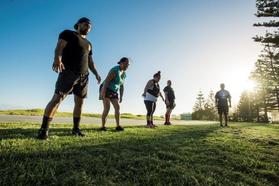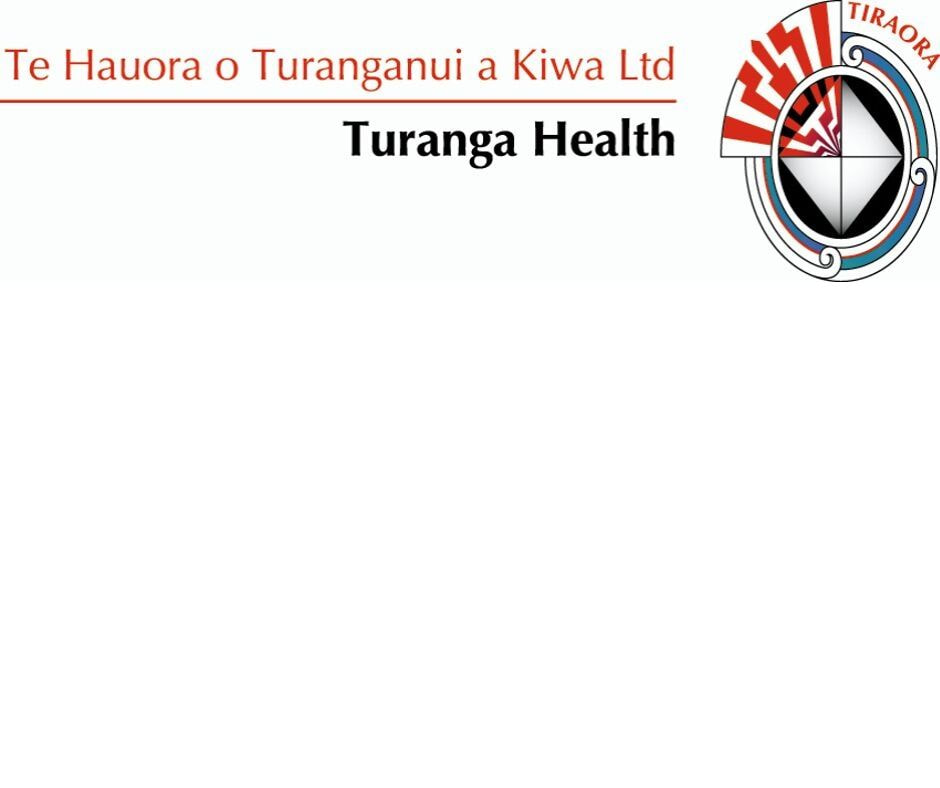 IT is not just finding out what changes their bodies may go through that is important for young people, it's also knowing that it's something everyone goes through . . . it's all normal, says Turanga Health community nurse Reena Rivera. “There can sometimes be a bit of giggling at the start but it doesn't take long to settle down and then they are really interested,” she says of the Puberty and Personal Hygiene classes she and colleague Aimee Milne take at the 11 rural schools on their beat. The Puberty and Personal Hygiene sessions are held separately – with caregiver permission required for the Puberty sessions – for year 7 and 8 students in the Turanga Health catchment. Mostly, they are co-ed, though the girls do splinter off to learn a bit more about menstruation and how to manage it. “Sometimes you can find that, if it is just girls or just boys, the students can be a bit more forthcoming with their questions,” says Reena, who works with schools in Turanga Health's Western Rural area. “But they are all very interested and engaged and you can see that growing as they realise that 'this is not just happening to me'.” Most students are comfortable being presented with scientific information in a professional manner and that, Reena believes, is the key to the classes' success. “Many parents will talk to kids about these things but they often bring their own background into it,” agrees Aimee, who takes care of Turanga Health's Eastern Rural area. “That's great, but we find the students respond really well to things like using the proper names for their body parts – 'penis' rather than 'willy', for example – and it creates a good, open learning environment for them.” During the Personal Hygiene sessions, students learn about everything from showering to head lice and hand-washing. Meanwhile, in Puberty education, topics include the mental and physical changes students can expect as they mature; how to manage those changes; how to access support if they feel they need a chat; the importance of sleep, exercise and nutrition; and how to keep themselves safe during their teen years. While the nurses don't cover sexual behaviour for year 7 and 8 students, they do talk about reproductive organs and the mechanics of conception. And it's all for a good cause: studies show that empowering students with information about themselves and others helps prevent incidences of teen pregnancy and sexual violence. Both Reena and Aimee say they don't just talk “at” the students, they talk “with” them by incorporating brainstorming, group exercises and discussions. “Even at that age the students are at very different stages both in their development and in the amount of knowledge they have,” Aimee says. “But they all seem to get a lot out of it,” adds Renee, “and it's very rewarding to help kids understand that what they are facing is normal, and to give them the tools they need to help deal with it.” ENDS
0 Comments
 THREE months after funding for the HPV vaccine was extended to cover males, a Gisborne health provider has asked eligible boys if they want it and the answer has been a near-unanimous “yes”. Turanga Health community nurses offer cover at 11 rural schools in Tairawhiti which between them have about 45 year-eight boys on their rolls. Of those, 41 boys have consent from their caregivers to be vaccinated against the cancer-causing human papillomavirus (HPV). That's an uptake rate of around 91 percent – well up on the 66 percent average coverage for girls across the country. It’s also considerably higher than the 72 percent average recorded in the wider Tairawhiti region, and the 75 percent target the Ministry of Health hopes to reach for HPV vaccinations in New Zealand. Turanga Health community nurses Aimee Milne and Reena Rivera believe straight-talking has been key to getting parents and caregivers on board. They don't talk as much about growths-on-genitals as they do about heading off life-threatening diseases, says Aimee. “We talk to the kids about the vaccine, show them a video about how it works then give them information to take home to their parents so they can decide if it is for them,” she says. “There are lots of benefits we can talk about but, for us, the emphasis is really on those potentially fatal diseases. We think that's massive.” Not all of the boys have had their first shots – for reasons such as forgetting their consent forms – but Reena says they do a catch-up visit to ensure the boys are ready for their second shot (and last) shot around September. “That's why we like to approach them early in the school year, so we can make sure they get both shots for full cover.” The nurses say that immunisation before the age of 15 means young people need only two doses of the vaccine, rather than three. It also ensures they have full cover well before they consider becoming sexually active and therefore coming into contact with the various forms of HPV. Since its introduction in 2008 the vaccine has been free for girls (though available to others for $500-$800) because of HPV's relationship with cervical cancer. Since the start of this year, however, it has also been offered free to boys and University of Auckland senior lecturer Dr Helen Petousis-Harris says that's a matter of equity. “The HPV virus causes cancers that affect them, too, and boys also get genital warts, just like girls,” she says. “Offering this vaccine to all our population makes it much fairer.” ENDS Further information
 Members of a Manutuke kapa haka team find a fitness programme that helps keep them on top of their game. THE swell of voices rising in waiata gives way to the bulge of biceps when a Manutuke kapa haka team swaps rehearsing for training in the great outdoors. “Stay in it whānau,” Tū Te Manawa Maurea kaiāwhina Bruce Amai urges as team members realise just how many press-ups and kettle bell lifts they have let themselves in for. “It will be so worth it.” As part of their build up for the 2017 Te Matatini kapa haka nationals, members of TTMM (Rongowhakaata) have taken part in weekly sessions known as Tū Haa – an outdoor training initiative run by Turanga Health. “Being fit is important for the performers but this is also a way for them to strengthen their bond away from the performance arena,” says Turanga Health kaiāwhina Bernie Semau. Bernie has a background in health science and personal training. “Taking the activities outside means we can use and enjoy our natural resources. People like being out and about and appreciating where they live.” Bruce Amai's role as kaiāwhina with TTMM sees him working behind the scenes, but he joins the team front and centre at their Thursday night Tū Haa sessions. “I like to stay active and I like to get behind the whānau and this is a way of bringing the two together,” he says. “It builds on and enhances what we already have as a whānau and as a team.” It is also a way of making sure TTMM is always on its game. “Te Matatini is over for another four years but we always take part in the Tairāwhiti Tamararo regionals so, by continuing to work together, we stay focused.” With Tū Haa (the breath), anyone can take part and TTMM kai haka Alex Ria says that suits her perfectly. Alex has been member of the team for 10 years and in 2010 added a further string to her bow by training for Iron Māori. Tū Haa sessions help her maintain fitness for kapa haka and the myriad of other sporting commitments she and her whānau enjoy. And, as she says, the whānau that plays together, stays together . . . for Te Matatini 2017, son Kereopa (17) played guitar and joined in on the Tū Haa circuit. “When you step up a level to do something like Iron Māori it’s worth maintaining that fitness and these sessions really help,” Alex says. “It helps us continue those important connections we have within the team, plus it's great to go somewhere after work where you can really have a blow-out.” Story by Kristine Walsh Images by Strike Photography |
Media Releases
Email us if you want to receive our media releases. Archives
February 2024
|


